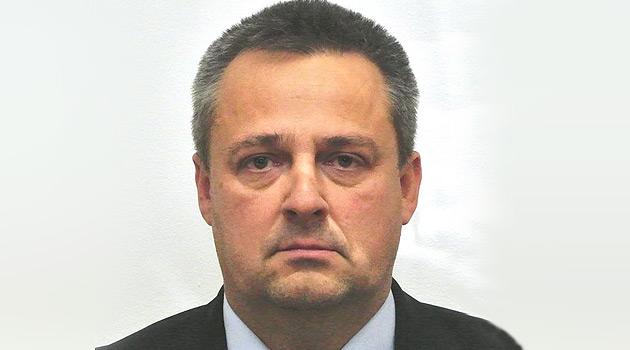Czech town segregating Roma in housing and at school - mayor says integration will only happen over his "dead body"

Milan Volf, Mayor of the Czech town of Kladno, says it is impossible to move those living in the town’s excluded localities into regular apartment buildings and that he believes the per-child allowances offered by the state are like a business opportunity that is motivating families in ghettos to grow exponentially larger. He made those remarks in an interview on 23 September for news server E15.cz.
"Integrating these people into society is very difficult. If we allocate them a building we will be criticized for creating a ghetto. Integration among decent people? I’m sorry, but only over my dead body. This we cannot do…" says Volf, who established the "Vote for Kladno" party in 2010 and won the local elections there in 2014.
Volf was first elected mayor from 1998-2004 for the Civic Democratic Party (ODS). He also says in the interview that because the state senses there is a problem with residential hotels for socially vulnerable people it is shifting responsibility for them to the municipalities: "It seems ridiculous to me when the state claims it is the town halls creating the ghettos. Those people cannot be relocated into regular apartment buildings. I absolutely cannot imagine it, not if we have any regard for those tenants who are not on welfare and who do go to work and take care of their children."
When asked by news server E15 if restricting the state child allowance with respect to the number of children eligible per family would help, he replied: "We have a young lady here who gave birth to her first child at age 20. By now she’s 30, she has nine children, and she receives an allowance for every single one of them. It’s basically a business paid for by the state, which should certainly restrict these allowances when it comes to the number of children born, if only because you will take better care of fewer children…"
Volf said he believes the solution consists of focusing on the level of education achieved by people from the ghettos: "These children attend school, but they don’t learn and they drop out, they follow in the footsteps of their parents. They get these allowances for their offspring and the families grow exponentially. If they were ever to randomly find a job, they would lose their material distress benefits, which very often are higher than their wages would be, of course. Therefore it pays not to go to work, to watch television, and to procreate. Whenever this community moves into a locality we see the same old problems with disturbing nighttime quiet and public order, with rioting and shoplifting. We are in a vicious circle that the state must address. The municipality is just dealing with the consequences."
Czech Television: School in Kladno has separate non-Romani and Romani classes
The beginning of the school year has once again stirred up discussions about educating non-Romani and Roman pupils together. Classes just for Romani children were awaiting first-graders on 1 September in the towns of Duchcov and Krásná Lípa, and a similar problem is now being addressed in Kladno.
According to some parents, children are being separated according to ethnicity, but the schools are defending themselves against those who call these classes "segregated". The principal of the school in Krásná Lípa, Ivana Preyová, previously told news server Romea.cz that the pupils in the first grade classes of her school were divided according to whether they had attended nursery school or not.
The management of the school in Duchcov has sharply rejected the claims that it is segregating children. Romani parents of first-graders in both towns speak of pressure from majority-society parents on school administrations who do not want their children to attend the same classes as their Romani schoolmates.
The situation in Kladno’s Primary School No. 9 was reported on by Czech Television (ČT), which has revealed that several grades there have been divided into non-Romani and Romani classes. "If the first-graders attend classes that are predominantly Romani, how are they supposed to integrate right away?" the mother of one such first-grader asks in the ČT reportage.
"The principal says that if we mothers who have complained don’t like it then we should go to another school," another woman told ČT. The situation at the school is also influenced by the large number of Romani pupils attending it.
Other schools in Kladno, according to the principal of Primary School No. 9, will not accept Romani children. Experts believe children should be educated together nevertheless.
"This is visibly a purely Romani class, actually comprised of Romani children, the vast majority. They outnumber the non-Romani children. That is not only unacceptable, it also makes no sense, other than that it might be easier for the school somehow," said Klára Laurenčíková, an educator and chair of the Czech Professional Society for Inclusive Education, who shows photographs of various classes in the ČT report.
Laurenčíková says that when Romani parents enroll their children, school administrators recommend they choose a school predominantly attended by other Romani children. "That behavior is completely immoral and unacceptable. All children have the same right to attend the primary school that serves their catchment area. Once children manage to enroll in such a school it is then unethical to put them in segregated classes," she said in an interview for Romea.cz.
Czech Human Rights Minister Dienstbier has also commented on the situation, saying he believes it is necessary to give all schools more support. "They need to be receiving enough support from special needs educators and to have enough teaching assistants or school psychologists," he told ČT.
The Czech School Inspection Authority is currently preparing to inspect these schools. Should they find deficiencies, and should those deficiencies go uncorrected, the schools could be fined or, in the most extreme cases, closed completely.